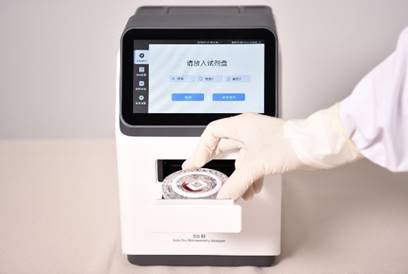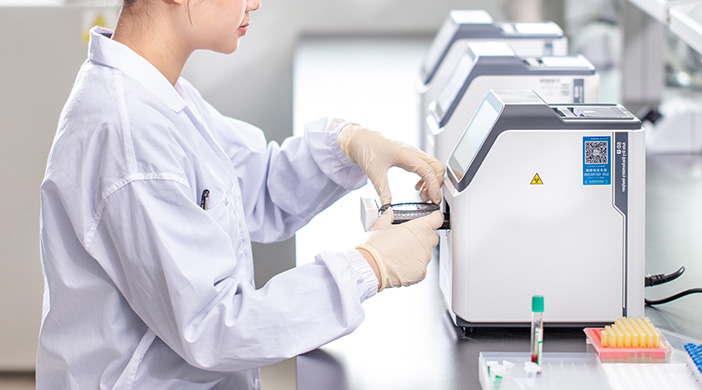release time:2022-07-25 17:01:54
A chemistry analyzer is a machine used to measure the concentration of various chemicals in a sample. The most common type of analyzer uses enzymatic reactions to measure the concentrations of glucose, protein, and cholesterol. By measuring the rates of these reactions, the machine can determine the concentrations of these chemicals in the sample. In addition to measuring the concentration of specific chemicals, chemistry analyzers can also be used to diagnose diseases. For example, by measuring the levels of certain enzymes in a patient's blood, a doctor can determine whether or not they have liver disease. Chemistry analyzers are essential tools in the field of medicine and play a vital role in diagnosing and treating diseases.

2022-06-23
Biochemical analysis of the body blood samples forms the basis of medical diagnosis and plays a crucial role in treating various health ailments. Automated biochemical analyzers analyze body blood samples and evaluate the concentration of biochemical markers,

2022-03-14
Biochemical analysis of the body fluid samples forms the basis of medical diagnosis and plays a crucial role in treating various health ailments. Automated biochemical analyzers analyze body fluid samples and evaluate the concentration of biochemical markers,

2021-09-03
An ordinary pet hospital needs at least one blood biochemistry analyzer, a blood analyzer, an X-ray machine, ventilator, anesthesia machine, and so on. And some instruments, cheap for humans, but very expensive for animals, such as blood pressure instrument, need 10 to 20,000 yuan. And the price of new technology and the latest medical equipment is even higher.